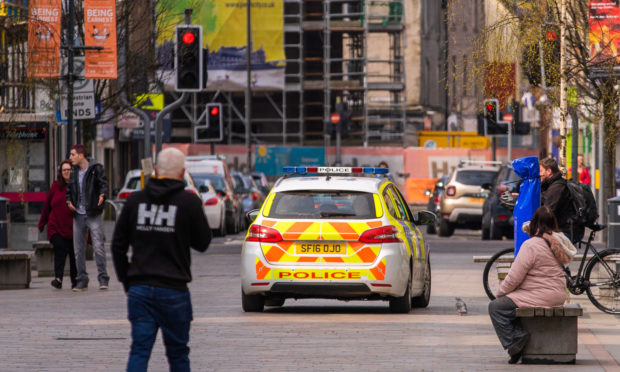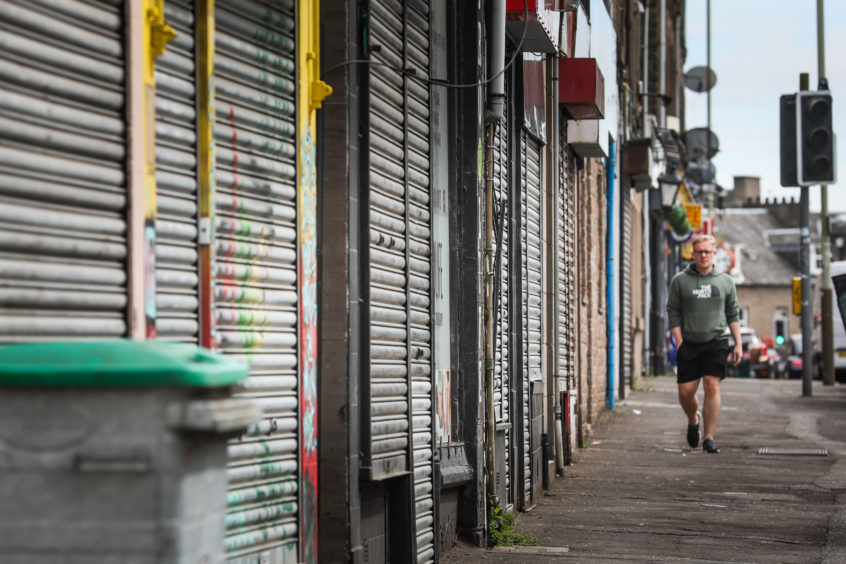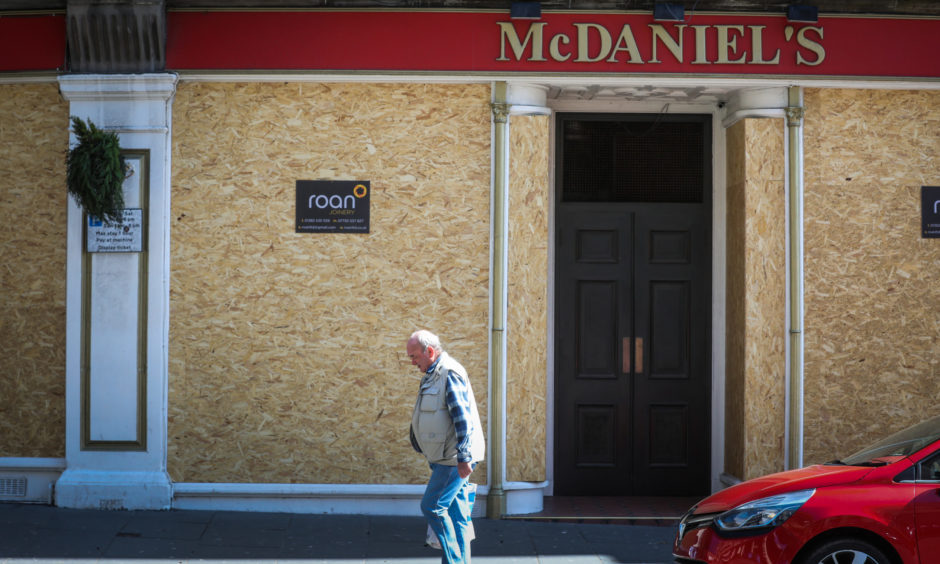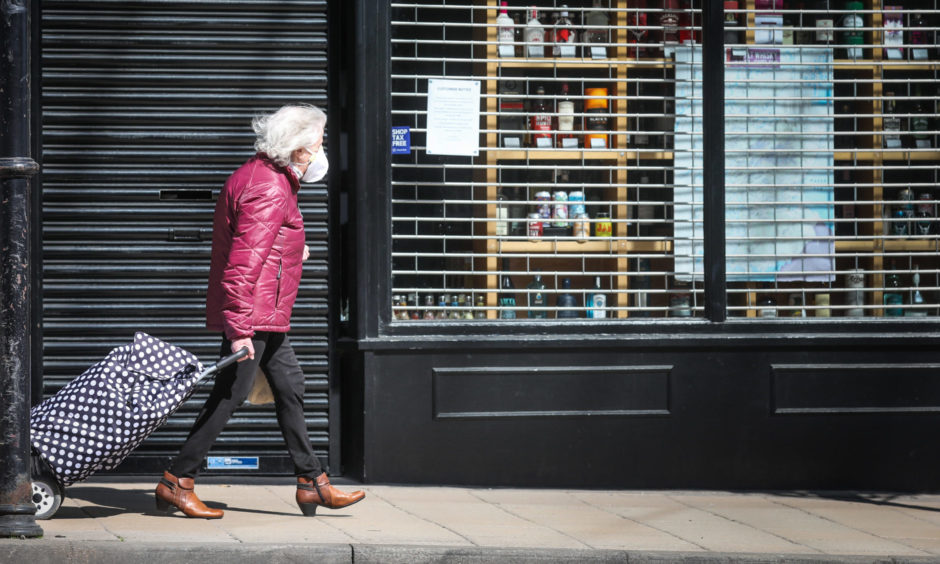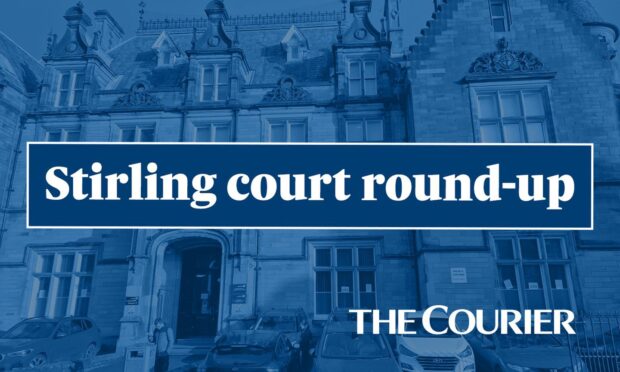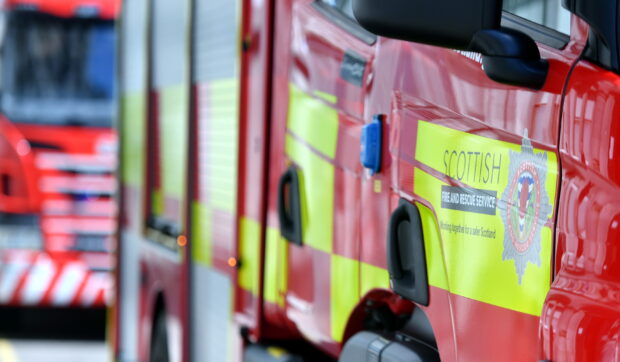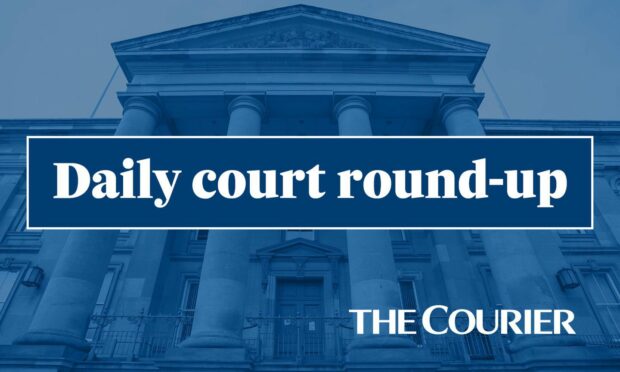Scotland’s Christmas lockdown is just days away, with major restrictions coming into force to prevent further spread of a new coronavirus strain.
From Boxing Day morning, all of the country except for the northern and western isles will move into ‘tier four’, the toughest level of Covid-19 restrictions. The islands will enter level three.
The measures will be in place for three weeks and will be reviewed after two.
On Saturday, Scotland’s plans for a five-day festive easing of coronavirus restrictions were ripped up in response to the rapid spread of the mutant strain of Covid-19.
A travel ban is in place between Scotland and the rest of the UK, with measures now only being relaxed on Christmas Day. However, people are being advised not to travel or meet others at all on Friday if they can avoid it.
Speaking in the Scottish Parliament on Tuesday, First Minister Nicola Sturgeon strengthened the level four advice for Scots.
She said the festive lockdown is “not as stringent as the March lockdown” but warned people under tier four to “stay as local as possible and to stay at home as much as possible”.
Ms Sturgeon said the Scottish Government is considering whether this advice needs to be “placed in law”.
She added: “And more generally, as more evidence of the impact of this new strain of coronavirus becomes available we will consider whether there is a need to strengthen level four restrictions any further.”
On the new strain of the virus, she said: “The very rapid spread in London and the south-east serves as a warning of what we will face here if we do not take firm action to suppress the virus.
“We have a real concern that, without significant counter measures, we could be facing another period of exponential growth as we enter the new year.
“That would mean many more people catching Covid and, even without this new strain causing more severe illness, that would result in many more people needing hospital and intensive care. That would put an enormous strain on the NHS and lead to much more loss of life.
“To be blunt, that is what we have to act now to stop.”
Level four rules at a glance
What is closing?
Pubs, bars, restaurants and cafes must be closed, however takeaways can still operate.
Only shops required for “essential retail” can continue welcoming customers. This includes supermarkets, convenience stores, off-licences, pharmacies, newsagents, petrol stations and more.
On Tuesday, Nicola Sturgeon said that homeware stores and garden centres are being defined as non essential and will be required to close.
Click-and-collect and online services are also able to continue at shops.
Hairdressers, barbers, beauty salons, tattoo parlours and other close-contact service providers must close.
Leisure and entertainment facilities such as cinemas must also shut their doors, along with indoor visitor attractions including museums, galleries, heritage sites, zoos and aquariums.
Public buildings such as libraries must close, however community centres can operate for essential services. Public and customer toilets can stay open if safe to do so.
Holiday accommodation – including hotels, B&Bs and self-catering sites – must close to tourists. They can remain open for “essential” customers, such as those requiring residence for work reasons, funerals, due to homelessness, or for other reasons.
Meeting others
Indoors
No indoor meetings can take place in your home with anyone not in your household.
Meetings inside with others can take place in a public place. This should be limited to six people (not including children under 12) from two households. There is also an exception for households of more than six people.
Exceptions are also in place for those providing care and support to a vulnerable person.
Outdoors
Outdoor meetings in gardens or public places can take place between two separate households. Again the number is limited to six people.
The same indoor gathering exceptions for under-12s and households of more than six apply for outdoor settings.
During outdoor gatherings, entering another person’s home is only permitted to get to their garden or to use the toilet. People are being asked to avoid touching surfaces where possible and to be diligent regarding cleaning and hygiene if entering a property.
Youngsters aged between 12 and 17 can meet in groups of up to six at a time outdoors. The two-household limit does not apply. Social distancing must be adhered to.
Extended households
Extended households can be formed by people who live alone or by couples who live apart from each other.
However, only one extended household can be formed. The arrangement can be ended at any time, with a 14-day break between forming a new one.
Children whose parents are separated can move between both homes.
Schools
Schools are going online until January 15. They will remain open for the children of key workers and for vulnerable youngsters. Colleges and universities are allowed to operate with a mix of remote and in-person learning.
Travel
People living in level three and four areas are required to stay within their area, with travel into and out of these regions is prohibited for all but “essential” journeys.
Travel “without a reasonable excuse” between Scotland and England, Wales, Northern Ireland, County Donegal and Jersey is prohibited.
Overseas trips are “strongly advised against” and travelling abroad for a holiday is not considered a “reasonable excuse” to leave a tier three or four area in the country.
All the exceptions to the travel ban can be found on the Scottish Government website.
Sports
Gyms and other indoor sports facilities have to close under level four rules.
Outdoor, non-contact sports can take place. People can also join others outdoors for “informal” exercise, so long as the above rules on household meetings are adhered to.
Outdoor exercise such as walking, running cycling or golfing can be take place with number limits. However it must take place within five miles from your council’s boundary area, and the activity must start and finish in the same location.
Governing bodies will produce their own guidance on the likes of football and rugby.
Worship, weddings and funerals
Places of worship can stay open with social distancing and hygiene measures in place, along with a cap on numbers at any one time.
Wedding ceremonies and civil partnerships can take place with a maximum of 20 people, so long as social distancing can be adhered to.
Funerals and wakes can go ahead with a maximum of 20 attendees.
